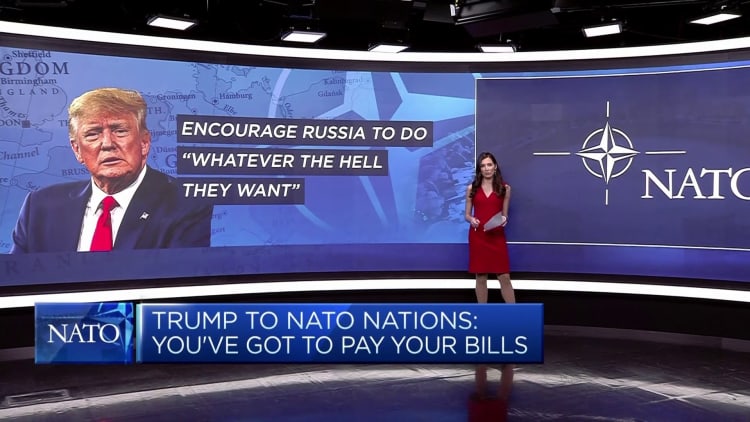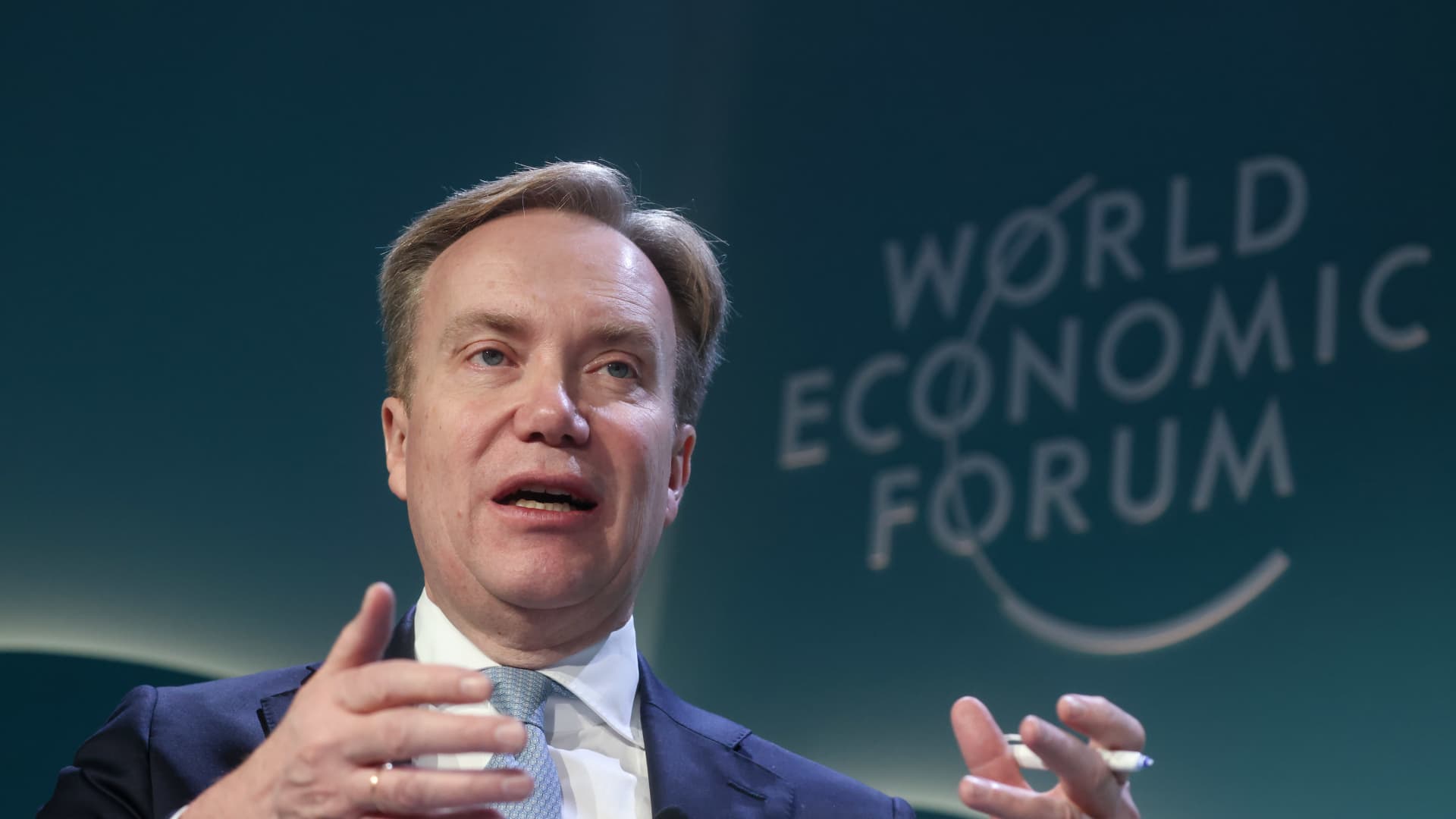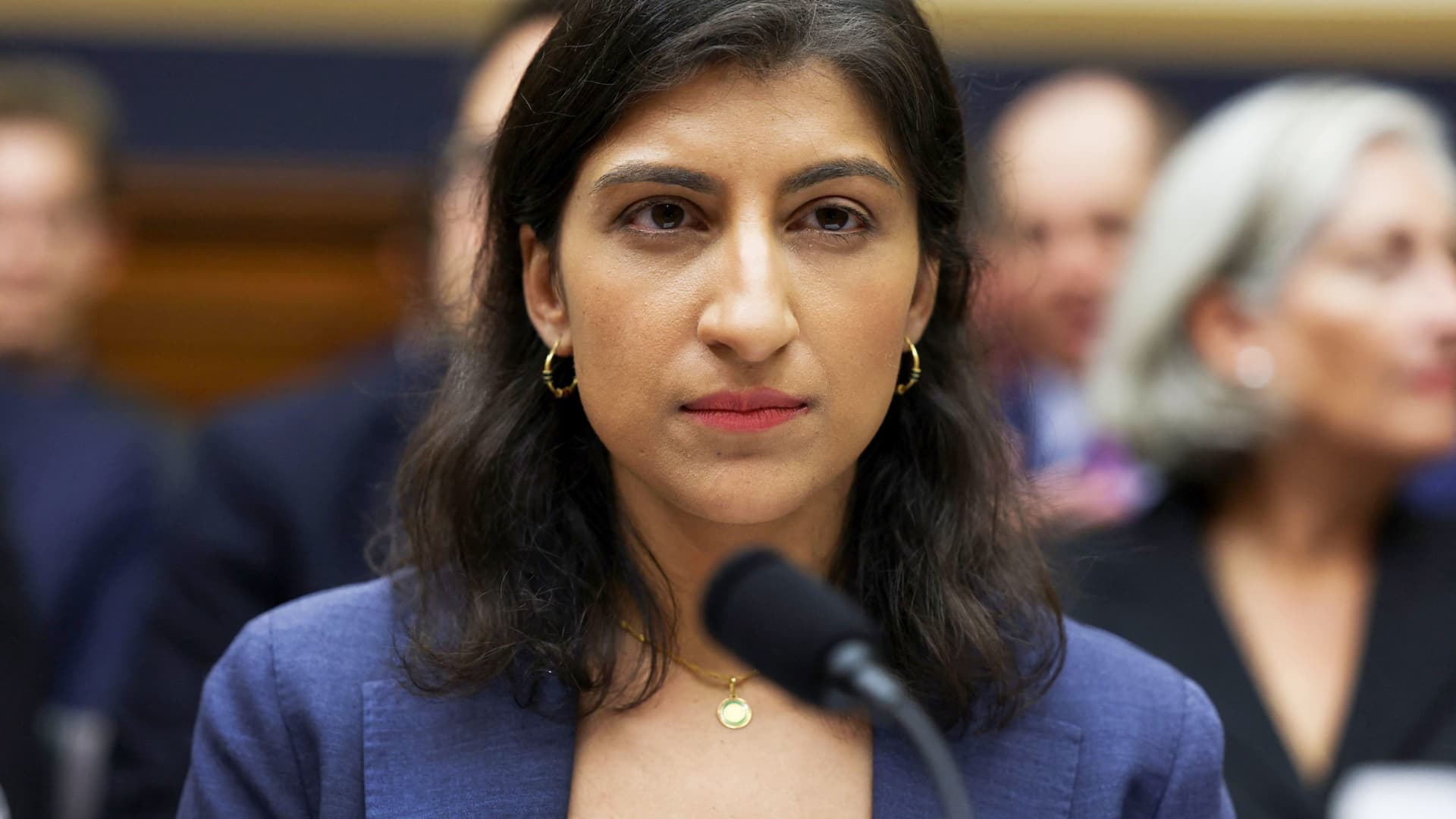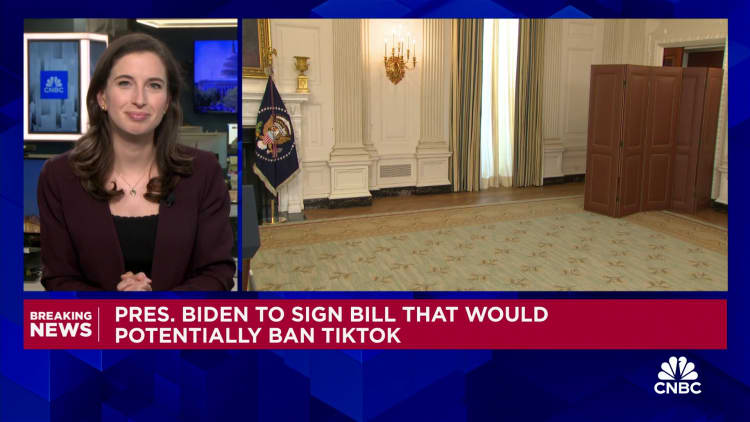NATO Secretary General Jens Stoltenberg speaks during a press conference on the third day of the annual meetings of the International Monetary Fund and the World Bank on October 11, 2023 in Marrakech, Morocco.
Susana Vera | Reuters
NATO Secretary General Jens Stoltenberg acknowledged criticism that some members had underfunded the coalition’s defense budget and said he expected a record 18 allies to meet their military spending target this year.
His comments follow controversial statements by former US president and Republican front-runner Donald Trump, who said he would not protect NATO countries from Russian hostilities if they defaulted on their membership dues.
Trump’s comments sparked widespread anger in the international community, including among fellow Republicans, and led Stoltenberg to charge earlier this week that such a proposal “undermines our overall security.”
Read more about CNBC’s politics coverage
“The criticism you hear is not primarily about NATO, but about NATO allies not spending enough on NATO. And that’s a fair point,” Stoltenberg said during a press conference on Wednesday when asked whether Trump’s comments were consistent with the general views of Republican officials that the NATO chief has addressed.
“It is a point and a message that has been conveyed by successive U.S. administrations that European allies and Canada need to spend more because we have not seen equitable burden sharing across the alliance,” Stoltenberg added. “The good news is that NATO allies are now doing just that.”

He added that he expected 18 of the 31 members of the military coalition to meet their goal of spending 2% of their gross domestic product on defense this year, a six-fold increase from 2014, when the allies formalized their investment commitment. This will also take into account Europe’s largest economy, Germany, which will provide the equivalent of 71.8 billion euros ($76.93 billion) for defense this year through regular and special budget provisions, a defense ministry spokesman said on Wednesday, according to Reuters before.
“However, some allies still have a long way to go,” Stoltenberg said, also pointing out that the 2% contribution represents a minimum expenditure.
The coalition has historically been led by the US, with Washington commanding the alliance’s largest military presence at 1.35 million troops in 2023, according to Statista. Trump was a well-known skeptic of NATO during his first presidential term, arguing that the United States unfairly bore the burden of the lion’s share of financial contributions.
NATO’s spending rose dramatically after Russia’s full-scale invasion of Ukraine nearly two years earlier, with Stoltenberg seeing military and aid packages to Kiev as important contributions to members’ own well-being.
“I welcome Europe’s recent decision on a major new aid package and count on the US Congress to do the same,” he said on Wednesday. “This is not charity. This is an investment in our own security.”
At the beginning of the month, EU member states agreed on an additional aid package totaling 50 billion euros for Kiev. Across the Atlantic, the U.S. Senate voted this week to approve $95 billion in funding for Ukraine, Israel and Taiwan, advancing the bill for greater scrutiny by the Republican-led House of Representatives.
Source link
2024-02-14 17:09:20
www.cnbc.com






